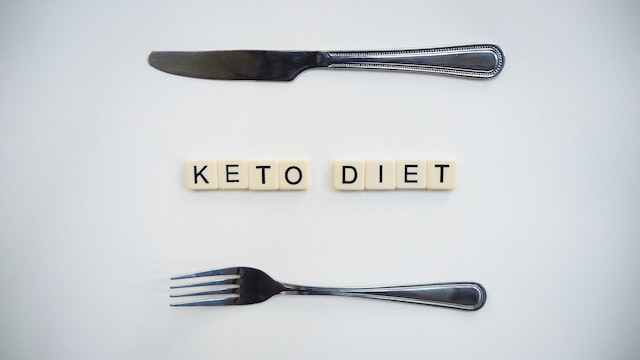Here is your complete guide to keto diet how many carbs.
Introduction to Keto Diet How Many Carbs
Let’s explore everything about keto diet how many carbs. When it appears that everyone — not just celebrities — has tried the ketogenic diet, you might be wondering if it will work for you. The keto diet is a high-fat, moderate-protein, very low-carbohydrate eating plan. But, while it’s true that you can eat all the butter and bacon you want and still lose weight, is this really true — or healthy? So is the keto diet really the best way to lose weight?
keto diet how many carbs do you need? Also keto diet how many carbs why it’s important? Why you need to know keto diet how many carbs? Why keto diet how many carbs you should calculate? Here is your complete guide to the keto diet how many carbs. So let’s start explain keto diet how many carbs.
Is the Keto Diet Safe?
According to the Epilepsy Foundation, the keto diet began as a therapeutic diet used to control seizures in people with epilepsy. A keto diet may be necessary for those people’s health. However, most people do not need to follow the keto diet in order to be healthy.
Today, the diet is popular, and many people use it to lose weight. However, high levels of saturated fat may be harmful to long-term heart health, and severely low carb diets may cause unpleasant side effects such as constipation and headaches, according to the Mayo Clinic. Because keto is so restrictive (it excludes most fruits and dairy, whole grains, many vegetables, and legumes), you may be deficient in certain nutrients, such as fiber.
Is the Keto Diet Safe to Follow?
Even though eating an extremely high-fat diet may appear to be a radical way to eat, “the research looking at ketosis via diet has not shown any real negative consequences. (Ketosis is a natural metabolic state in which your body burns fat instead of glucose, a type of sugar.) However, there have been few long-term studies, says Kendra Whitmire, CNS, a functional and therapeutic nutritionist in Laguna Beach, California. It’s difficult to say definitively that it’s safe, and it also depends a lot on the foods you eat on the diet. (For example, olive oil is healthier than butter, and salmon is healthier than bacon.)
However, following the keto diet properly, and especially with the assistance of a medical professional, should reduce negative health effects, according to Whitmire.
Is Ketosis Bad?
Carbohydrates are typically broken down as your body’s preferred fuel source. So ketosis occurs when your body enters a fat-burning state and breaks down fat into ketone bodies that are used as energy.
Aside from the keto flu, “many studies have shown that entering ketosis via diet has no real negative consequences in the short term,” says Keatley. Long-term studies, he adds, are needed to truly assess the impact. Putting your body into ketosis for a short period of time is unlikely to be harmful for most healthy people.
How Much Weight Can a Keto Diet Lose?
There’s no doubt that a ketogenic diet can help with weight loss, at least at first — and anecdotal reports of dramatic changes are plentiful. “I have clients who have lost a significant amount of weight on a keto diet, but they were obese when they started and had a lot of fat to lose. “These people can undergo fairly dramatic body transformations,” says Keatley. In a 2017 study published in the Journal of Clinical Endocrinology, 20 obese people who followed a very low-calorie keto diet for four months lost an average of 44 pounds, primarily from body and visceral fat. (It’s worth noting that there was no placebo group and this was a small sample size, so the findings are limited, and the diet followed consisted of only 600 to 800 daily calories, which is well below what most health professionals recommend). Another study published in Nutrition Metabolism in 2017 found that normal-weight adults who followed a non-energy (calorie) restricted keto diet for six weeks lost about four pounds in both fat and lean body mass.
Long-term studies, however, show that there is little difference in weight loss between keto and other diets. A previous meta-analysis compared adults on a ketogenic diet (less than 50 g carbs per day) to those on a conventional low-fat diet. After at least a year, those on the keto diet lost two pounds more than those on the low-fat diet. In the end, many diets, including keto, may help you lose the same amount of weight over time. With that news, know that there might be a better option for you out there, says Keatley.

What Fruits Are Allowed on the Ketogenic Diet?
Fruit is not typically a staple of the keto diet. The fruit contains far too many carbs due to its high natural sugar content. However, low-carb fruits such as berries can be consumed in moderation, according to Whitmire. If you want to get really technical, avocado and coconut, two higher-fat foods, are both fruits. Based on USDA carb counts*, the following fruits can be used on a keto diet:
- 1/2 cup raspberries has 3 g net carbs.
- 1/4 cup sliced strawberries: 2.5 g net carbs
- 1/4 cup blueberries have 4.5 g net carbs.
- 1/2 cup blackberries have 3 g net carbs.
- 1/2 cup shredded raw coconut: 2.5 g net carbs (unsweetened)
- 1 cup cubed avocado has 3 g net carbs.
*All carbohydrate values are net carbs (total carbs minus fiber). Fiber is frequently not included in net carbohydrate totals because it is not digested.
Can I Have Popcorn, Oatmeal, and Yogurt on Keto?
Unfortunately, high-carb foods like popcorn and oatmeal are unlikely to work with the keto diet. According to USDA data, one cup of air-popped popcorn contains 5 g of net carbs, which could be a quarter of your daily carb allowance. It’s also worth noting that one cup of popcorn is not a large serving; it has only 30 calories and no fat, so it won’t fill you up. Oatmeal is also unlikely to fit. According to the USDA, a quarter cup of plain dried oats (about half a cup cooked, also a small portion) has 12 grams of net carbohydrates for 77 calories and only 1 gram of fat. It depends on the type of yogurt you choose and whether it is keto-compliant. For example, one 5.3-ounce container of Fage plain 5 percent milk fat Greek yogurt contains 5 g of carbohydrates. Choose plain versions because flavored ones contain more sugar (and, therefore, carbs).
According to Whitmire, better keto-compliant snacks include nuts (1 ounce of almonds has 3 g net carbs, according to USDA data), seeds (half a cup of sunflower seed kernels has 3 g net carbs), and small amounts of low-carb fruits like berries. Other keto snack options include beef jerky and nonstarchy vegetables such as broccoli and cucumbers.
How Long Should You Follow the Keto Diet to Lose Weight?
According to Keatley, many people report losing weight quickly on a keto diet. Obese dieters lost an average of 44 pounds over four months when they followed a very low-calorie keto diet, according to research published in the Journal of Clinical Endocrinology. However, Keatley advises clients to stay in ketosis for no more than 12 weeks due to the uncertainties of doing so long-term and the risk of developing nutritional deficiencies.
When people stop eating keto and start eating more carbs, they tend to gain weight during the adjustment period, according to him. They also risk regaining all of the weight they lost, and possibly more, if they revert to their pre-keto eating habits after feeling deprived on the plan.
Read More About What Is The Effects of Sugar on Your Body?
How Much Protein Will You Consume on the Ketogenic Diet?
According to Keene, a typical keto diet may include 20 to 25% of calories from protein. One common misconception is that this diet is high in protein, when in fact it is moderate in protein. This will cause the body to exit ketosis. However, you should avoid eating too little protein. This is roughly 1.2 to 1.5 g of protein per kilogram of body weight. (According to Harvard Health Publishing, the recommended daily allowance is currently 0.8 g per kilogram of body weight.) As a result, a 140-pound woman should aim for 76 to 95 g per day. According to the USDA, a 3-ounce chicken breast contains 26 g of protein.
Read More About Say Goodbye to Back Fat for Good – Here’s How to Get Rid of It!
According to Keene, one of the best sources of protein on a keto diet is fatty fish (such as salmon or mackerel), which contains heart-healthy protein and omega-3 fatty acids. Another good option is eggs, which contain 6 g of protein and 5 g of fat per large egg.
While a keto diet emphasizes fat, it does not require you to eat bacon and sausages all day. Leaner proteins, such as chicken or cod, have a place; just remember to add fat (for example, roast the chicken with olive oil) to these lower-fat sources, she says. Many cuts of beef are also classified as lean or extra lean because they contain 10 g or less of total fat and a small amount of saturated fat (4.5 g and 2 g or less, respectively).
According to the Mayo Clinic, these include eye of round roast and steak, sirloin tip side steak, top round roast and steak, bottom round roast and steak, and top sirloin steak.
Read More About How to Build Muscle for Women?
What Effect Will the Keto Diet Have on Your Cholesterol Levels?
The intriguing aspect of a keto diet is that it frequently results in weight loss, which can improve blood lipid levels on its own. At the same time, you might be eating more saturated fat than ever before, thanks to butter, bacon, cream, and coconut oil.
We’ve long been warned that eating too much saturated fat raises cholesterol, putting us at risk of heart disease. As a result, many experts are concerned that increased fat consumption may be especially harmful for people who already have heart disease or are at risk of developing it.
Read More About The Surprising Health Benefits of Mangoes.
Conclusion
After 24 weeks on a keto diet, total cholesterol levels dropped, while “bad” LDL cholesterol decreased and “good” HDL cholesterol increased, according to a small study of obese patients. This could be due to the fact that any weight loss, regardless of method, tends to lower cholesterol.
Also, as previously stated, people with risk factors for heart disease should consult their doctors before embarking on a keto diet. Previous research concluded that a low carbohydrate, high fat and protein diet impaired arterial function in people at risk of cardiovascular disease.
It may come down to the type of fat you consume while on keto. A meta-analysis and review were conducted to compare the effect of a low-fat diet versus a low-carb diet on blood lipids. While lower saturated fat intake was associated with lower cholesterol levels, higher monounsaturated fat intake (such as olive oil or avocado) in the context of a high-fat diet was associated with higher levels of heart-protective HDL cholesterol.

